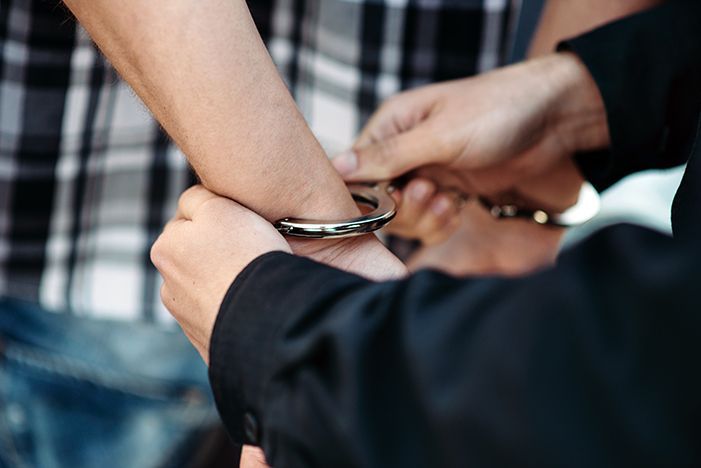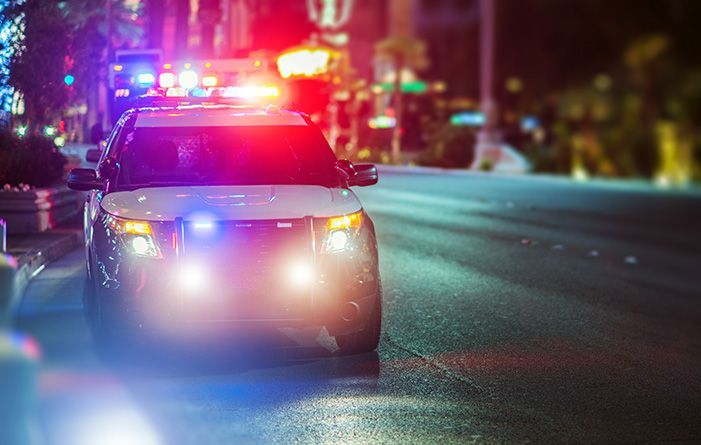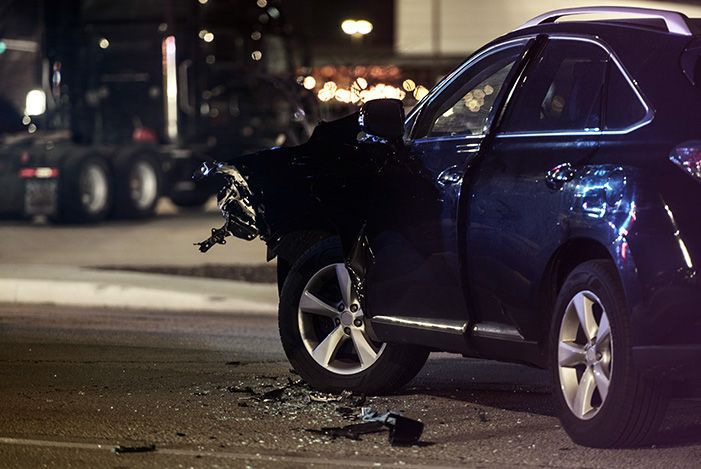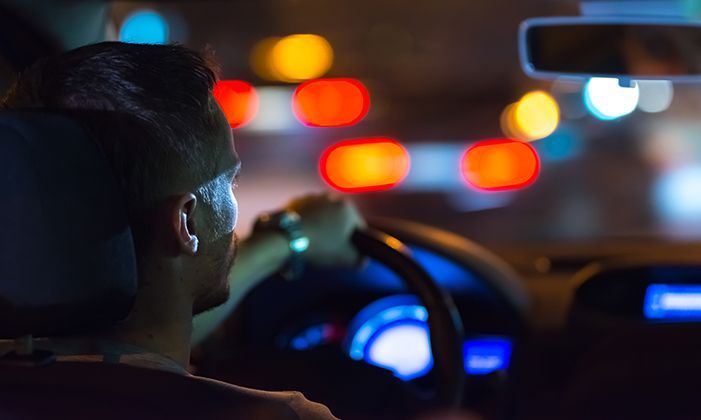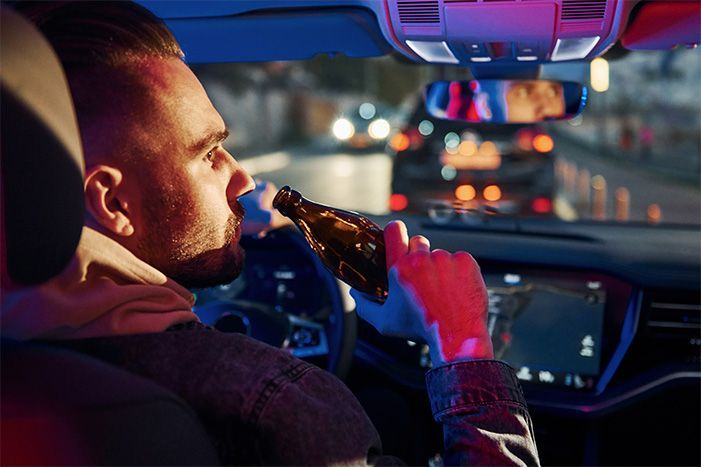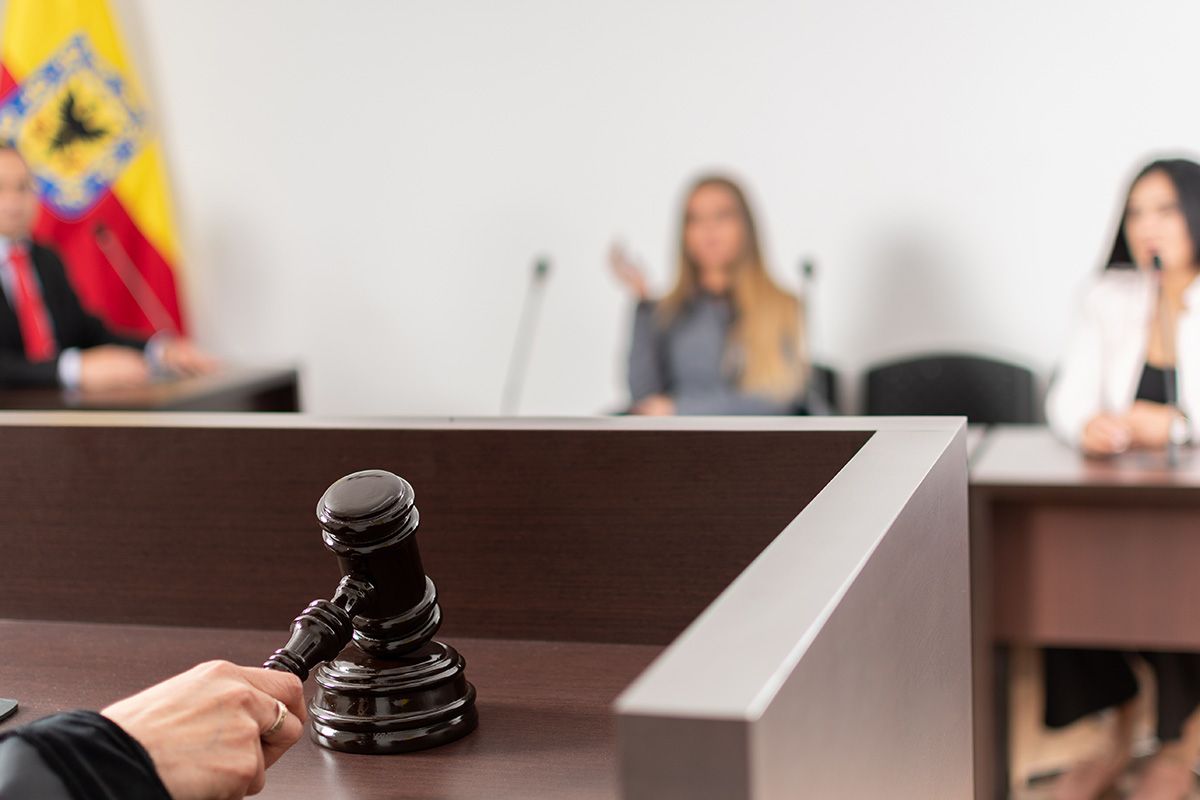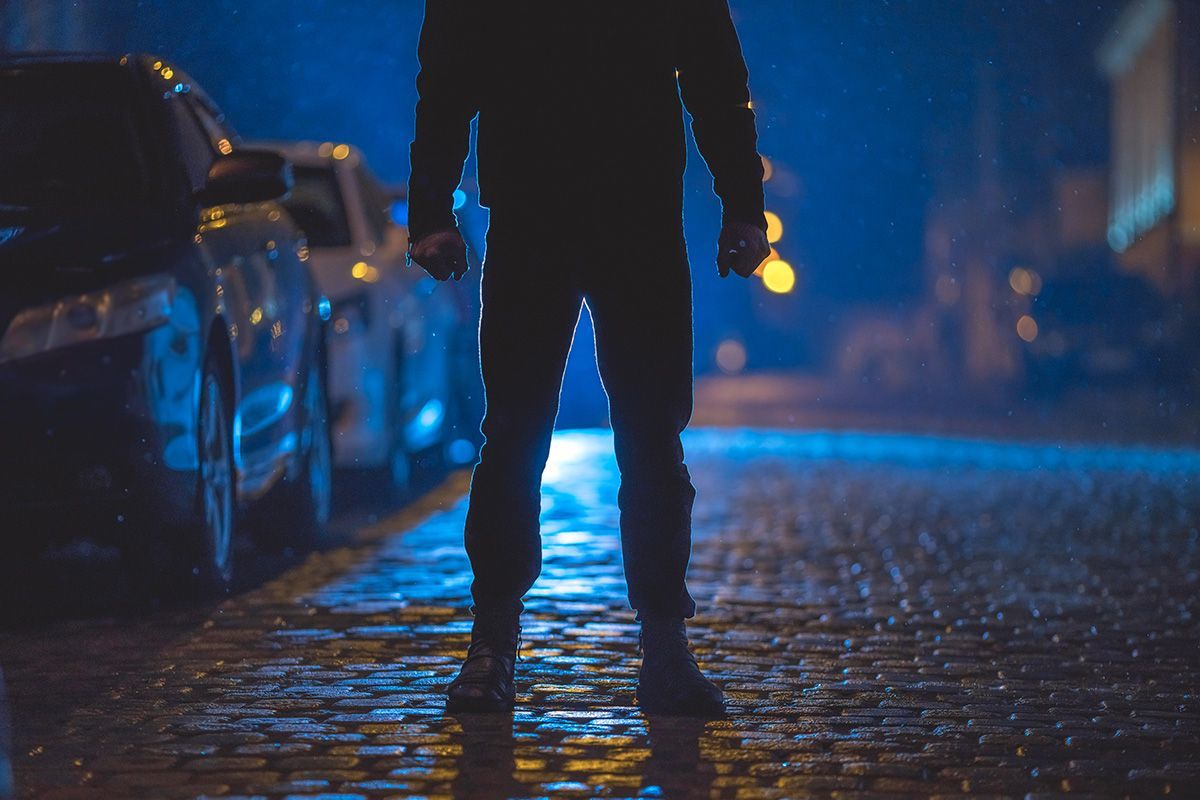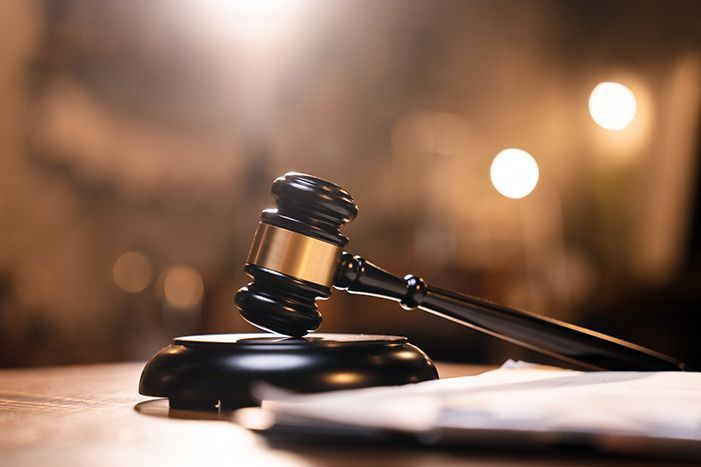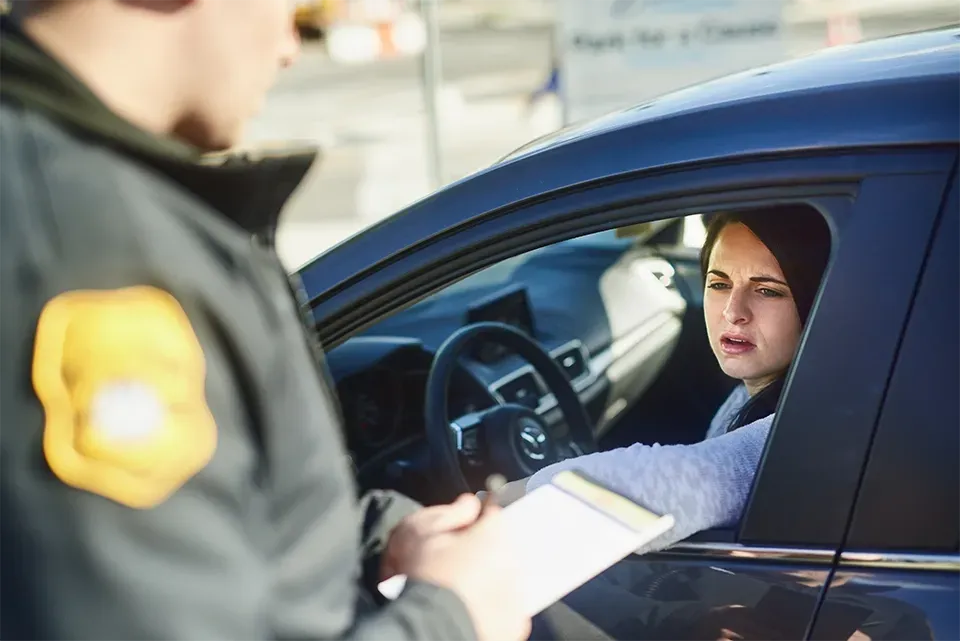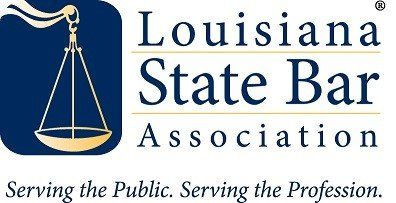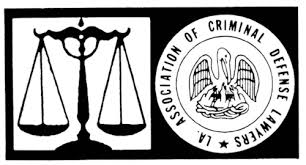What Is the Legal Limit for Alcohol in Louisiana?

For residents and visitors in Louisiana, particularly those in New Orleans, understanding the state’s laws regarding alcohol consumption and driving is essential. The legal limit for alcohol in Louisiana is more than just a number - it’s a critical threshold that separates responsible enjoyment from potentially severe legal consequences.
Understanding Louisiana DWI laws is important for anyone navigating the state's roads. This comprehensive guide aims to clarify Louisiana’s legal alcohol limit, providing critical information for anyone driving in the state.
In this article, we’ll examine the specific blood alcohol concentration (BAC) limits set by Louisiana law, explore how these limits are measured, and discuss the implications of exceeding them. We’ll delve into important related topics, including:
- The concept of implied consent and chemical tests
- Penalties and consequences for driving while intoxicated (DWI)
- How controlled dangerous substances factor into DWI laws
- Specific regulations for underage drinking and driving
- Driver’s license suspension and revocation procedures
- The serious offense of vehicular homicide related to DWI
- Legal defense options and the possibility of expungement
This information is important to know, whether you’re planning an evening in the French Quarter or simply want to understand your rights and responsibilities as a driver in Louisiana.
Let’s begin our exploration of Louisiana’s alcohol laws and their impact on drivers throughout the state.
What is the Legal Limit?
When we talk about the “legal limit” for alcohol in Louisiana, we’re referring to the maximum blood alcohol level (BAC) a person can have while operating a vehicle. But what exactly does this mean, and how does it apply to different drivers? Let’s break it down.
Standard BAC Limit
For most drivers in Louisiana, the legal limit is a BAC of 0.08%. This limit is specifically defined as 0.08 percent or more by weight based on grams of alcohol per one hundred cubic centimeters of blood. This means that if you have 0.08 grams of alcohol per one hundred cubic centimeters of blood, you're considered legally impaired.
It's important to note that DWI in Louisiana isn't limited to alcohol. You can be charged with DWI if you're under the influence of any controlled dangerous substance listed in Schedules I through V, a combination of alcohol and legal drugs, or even legal drugs alone if they impair your driving ability.
According to Louisiana Revised Statute 14:98, the 0.08% BAC limit is enforced when operating:
- Motor vehicles
- Aircraft
- Watercraft
- Vessels
- Other means of conveyance
But here's the catch: even if your BAC is below 0.08%, you can still be charged with a DWI if law enforcement determines that your ability to drive is impaired. This is because alcohol affects everyone differently, and some people may show signs of impairment at lower BAC levels.
Special BAC Limits
Louisiana law sets different BAC limits for certain groups of drivers:
- Commercial Drivers: If you're operating a commercial vehicle, your legal limit is significantly lower at 0.04% BAC. This stricter standard reflects the increased responsibility and potential danger associated with operating larger vehicles.
- Minors: For drivers under 21, Louisiana has a "zero tolerance" policy. The legal limit for underage drivers is set at 0.02% BAC. This extremely low threshold essentially means that any detectable amount of alcohol can result in a DWI charge for a minor.
Actual Physical Control
It's important to understand that in Louisiana, you don't have to be actually driving to be charged with a DWI. The law uses the term "actual physical control," which means you can be charged if you're in a position to operate the vehicle, even if it's not moving.
For example, if you're sitting in the driver's seat with the keys in the ignition, you could be considered in actual physical control of the vehicle.
Factors Affecting BAC
Your BAC doesn't just depend on how much you drink. Several factors can influence how quickly your body processes alcohol and how it affects you:
- Body weight and composition
- Gender
- Rate of consumption
- Food intake
- Medications
- Overall health
Because of these variables, it's often difficult to accurately guess your BAC based solely on the number of drinks you've had. This unpredictability is why many safety advocates recommend not driving at all if you've been drinking.
The Reality of the "One Drink Per Hour" Rule
You might have heard the rule of thumb that your body can process about one standard drink per hour. While this can be a general guideline, it's not a reliable way to stay under the legal limit. The rate at which your body processes alcohol can vary widely based on the factors mentioned above.
Understanding the legal limit is important, but the safest approach is always to avoid drinking and driving altogether. If you plan to drink, arrange for a designated driver, use a ride-sharing service, or take public transportation.
Implied Consent and Chemical Tests
In Louisiana, when you get behind the wheel, you're not just agreeing to follow traffic laws. You're also giving what's called "implied consent" to chemical tests if you're suspected of driving while intoxicated. But what does this really mean for drivers?
Understanding Implied Consent
Implied consent is a legal concept that assumes all drivers have agreed to submit to chemical tests if they're suspected of driving while intoxicated (DWI). This agreement is "implied" by the act of driving on Louisiana roads. The law is outlined in Louisiana Revised Statute 32:661 and it's a crucial part of how the state enforces its DWI laws.
Here's what you need to know about implied consent:
- It applies to all drivers on Louisiana roads, whether you're a resident or just passing through
- It covers tests for both alcohol and drugs
- Refusing a test doesn't mean you can avoid penalties
Types of Chemical Tests
When we talk about chemical tests, we’re referring to tests that analyze breath, blood, urine, or other bodily substances to measure your blood alcohol content (BAC) or detect the presence of drugs in your system. These tests can be categorized into three main types:
- Breath test: These are the most common and can be done roadside or at a police station
- Blood test: Usually conducted at a medical facility
- Urine test: Less common, but sometimes used, especially when drug use is suspected
Each of these tests aims to measure your blood alcohol content (BAC) or detect the presence of drugs in your system.
Consequences of Refusing a Test
You might think that refusing a chemical test is a smart way to avoid incriminating yourself. However, Louisiana law has some pretty steep consequences for refusal of a chemical test, including a breath test:
- Your driver's license will be seized immediately.
- If you're a resident without a license, you'll be denied a license for 6 months after the alleged violation.
- The refusal can be used as evidence against you in criminal proceedings related to the DWI charge.
- For most cases (first or second refusal), these administrative penalties apply even if you're ultimately found not guilty of DWI.
However, the consequences become much more severe in certain situations:
- If you've refused tests on two previous and separate occasions, or if the incident involved a fatality or serious bodily injury, you may not legally refuse the test.
- If you do refuse in these circumstances, you face:
- A fine between $300 and $1000
- Imprisonment for 10 days to 6 months
- Possible probation with conditions like jail time, substance abuse programs, or community service
Law enforcement officers are required to inform you of these consequences before administering the test.
For drivers under 21, evidence of refusal is admissible in proceedings related to underage drinking and driving.
Remember, under Louisiana's implied consent law, simply by driving on state roads, you've agreed to chemical testing if suspected of DWI. Refusing the test doesn't necessarily protect you from legal consequences and can, in fact, result in additional penalties.
Your Rights During Chemical Testing
While implied consent means you've agreed to testing, you still have some rights:
- You have the right to refuse a test, but you'll face penalties for doing so
- You have the right to an independent test after submitting to the official one
- You can request to speak with an attorney, but this doesn't give you the right to delay or refuse the test
Field Sobriety Tests vs. Chemical Tests
It's important to distinguish between field sobriety tests (like walking in a straight line) and chemical tests. Field sobriety tests are not covered under implied consent laws. You can refuse these without the same automatic penalties that come with refusing a chemical test.
However, refusing a field sobriety test may still have consequences:
- The officer may use your refusal as a reason to establish probable cause for arrest.
- Your refusal may be mentioned in court as evidence of consciousness of guilt.
- The officer may proceed directly to requesting a chemical test if they have other reasons to suspect impairment.
Understanding implied consent and chemical tests is important for all Louisiana drivers. These laws play a significant role in how DWI cases are handled and can have serious implications if you're ever suspected of driving under the influence.
DWI Penalties and Consequences
Getting caught driving while intoxicated in Louisiana isn't just dangerous - it can have serious legal and personal consequences. Let's break down what you might face if you're convicted of a DWI in the state.
Criminal Consequences
The criminal penalties for DWI in Louisiana can be severe and increase with each offense, especially if you have a prior conviction:
- Fines between $300 and $1,000
- Up to 6 months in jail
- 90-day driver’s license suspension
- Possibility of community service
- Fines between $750 and $1,000
- 30 days to 6 months in jail
- 1-year driver’s license suspension
- Mandatory community service
- Fines of $2,000
- 1 to 5 years in prison
- 2-year driver’s license suspension
- Seizure and sale of your vehicle
Administrative Penalties
Besides criminal penalties, you'll also face administrative consequences:
- Driver's license suspension (length varies based on offense)
- Requirement to install an ignition interlock device in your vehicle
- Mandatory substance abuse treatment programs
- Increased car insurance rates
Vehicle Seizure and Forfeiture
For third or subsequent DWI offenses, the court may order the seizure and forfeiture of the vehicle being operated by the offender at the time of the offense. If forfeited, the vehicle may be sold at auction, with proceeds going to cover court costs, towing and storage fees, and then distributed among the arresting agency, the prosecuting district attorney, and the Louisiana Property and Casualty Insurance Commission.
Enhanced Penalties
Certain circumstances can lead to even harsher penalties:
- Child Endangerment: Louisiana has a 'Child Endangerment Law' that imposes harsher penalties if a child 12 years of age or younger was a passenger in the vehicle at the time of the DWI offense. In such cases, the minimum mandatory sentences cannot be suspended.
- High BAC: If your BAC is 0.15% or higher, you'll face increased penalties.
- Vehicular Homicide: If someone dies as a result of your drunk driving, you could face up to 30 years in prison.
- Prior convictions for vehicular homicide, third degree feticide, vehicular negligent injuring, and first degree vehicular negligent injuring also count as prior DWI offenses for sentencing purposes.
Vehicular Negligent Injuring
If you injure someone while driving under the influence, you could be charged with first degree vehicular negligent injuring, which carries its own set of penalties, including fines and potential jail time.
Long-Term Consequences
The impacts of a DWI conviction can extend far beyond legal penalties:
- Employment difficulties, especially for jobs requiring driving
- Travel restrictions, including difficulty entering some countries
- Personal and professional reputation damage
- Financial strain from fines, increased insurance rates, and potential job loss
Understanding these penalties underscores the importance of making responsible decisions when it comes to drinking and driving. The consequences of a DWI can be life-altering, affecting not just you but your family and community as well.
Controlled Dangerous Substances and DWI
When we talk about DWI in Louisiana, it's not just about alcohol. The law also covers driving under the influence of controlled dangerous substances. Let's discuss what this means and how it impacts DWI laws in the state.
What Are Controlled Dangerous Substances?
Controlled dangerous substances (CDS) are drugs that are regulated by the government due to their potential for abuse or addiction. In Louisiana, these substances are classified into five schedules, Schedule I, II, III, IV, and V:
- Schedule I: Drugs with high potential for abuse and no accepted medical use (e.g., heroin, LSD)
- Schedule II: Drugs with high potential for abuse but some accepted medical use (e.g., cocaine, methamphetamine)
- Schedule III: Drugs with less potential for abuse than Schedule I or II (e.g., anabolic steroids)
- Schedule IV: Drugs with low potential for abuse (e.g., Xanax, Valium)
- Schedule V: Drugs with the lowest potential for abuse (e.g., cough medicines with small amounts of codeine)
DWI and Controlled Dangerous Substances
Under Louisiana law, it's illegal to operate a vehicle while under the influence of any controlled dangerous substance. This applies even if the substance was legally obtained with a prescription. The key factor is whether the substance impairs your ability to drive safely.
Chemical Tests for CDS
Just like with alcohol, chemical tests can detect the presence of controlled dangerous substances in your system. These tests typically involve blood or urine samples. It's important to note that:
- The presence of any amount of a Schedule I substance can result in a DWI charge
- For other schedules, the prosecution must prove that the substance impaired your driving ability
Penalties for CDS-Related DWI
The penalties for driving under the influence of controlled dangerous substances are similar to those for alcohol-related DWI. However, there are some key differences:
- Mandatory substance abuse evaluation and treatment
- Possible drug court participation
- Additional charges for possession of illegal substances
Prescription Drugs and DWI
Even if you have a valid prescription, you can still be charged with DWI if the medication impairs your driving. Some points to remember:
- Always read medication labels carefully for warnings about driving
- Be aware that combining prescription drugs with alcohol can increase impairment
- If you're unsure about a medication's effects, ask your doctor or pharmacist
The "Drug Recognition Expert" Program
Louisiana uses specially trained officers called Drug Recognition Experts (DREs) to identify drivers under the influence of drugs through a 12-step evaluation process that may include testing blood, urine, breath, or other bodily substances. These officers use a 12-step evaluation process to determine if a driver is impaired and by what category of drugs.
Legal Defense for CDS-Related DWI
Defending against a CDS-related DWI can be complex. Some potential defenses include:
- Challenging the validity of the chemical test
- Questioning the officer's observations of impairment
- Demonstrating that the substance didn't actually impair driving ability
Understanding how controlled dangerous substances factor into DWI laws is crucial for all Louisiana drivers. Whether you're taking prescription medication or using any other substance, it's important to consider how it might affect your ability to drive safely.
Underage Drinking and Driving
Louisiana takes a particularly hard stance when it comes to underage drinking and driving. If you're under 21, the rules are stricter and the consequences can be severe. Let's break down what you need to know.
Zero Tolerance Policy
Louisiana, like all states, has a "zero tolerance" policy for underage drinking and driving. This means:
- The legal BAC limit for drivers under 21 is 0.02%
- This low threshold essentially means any detectable amount of alcohol can result in a DWI charge
Why 0.02% And Not 0.00%?
You might wonder why the limit isn't set at 0.00%. The 0.02% limit allows for potential alcohol exposure from sources like:
- Some medications
- Mouthwash
- Communion wine
DWI Penalties for Minors
If you're under 21 and caught driving with a BAC of 0.02% or higher, you'll face:
First Offense:
- Fine between $100 and $250
- Participation in a driver improvement program
- Up to 10 days of community service
- 90-day driver's license suspension
Second Offense:
- Fine between $250 and $500
- Minimum of 48 hours in jail
- Up to 30 days of community service
- 6-month driver's license suspension
Additional Consequences
Beyond these penalties, underage DWI can have other serious impacts:
- Difficulty getting into college
- Loss of scholarships
- Trouble finding employment
- Increased car insurance rate
Refusing a Chemical Test
For drivers under 21, refusing a chemical test comes with its own set of penalties:
- 180-day driver's license suspension for a first refusal
- Potential for more severe penalties in court
The Driver Improvement Program
If you're convicted of underage DWI, you'll likely be required to complete a driver improvement program. This typically involves:
- Education about the dangers of drunk driving
- Substance abuse evaluation
- Possible substance abuse treatment
Parent Responsibility
In Louisiana, parents can be held responsible if they knowingly allow their underage child to drive while intoxicated. This can result in fines and even jail time for the parents.
Long-Term Impact
An underage DWI conviction can have long-lasting effects:
- It stays on your driving record for 10 years
- It can affect future job prospects, especially those involving driving
- It may need to be disclosed on college applications
The best policy is always to avoid drinking altogether if you're under 21, and never to drive after consuming any amount of alcohol.
Driver's License Suspension and Revocation
When it comes to DWI in Louisiana, one of the most immediate and impactful consequences is the loss of your driving privileges.
Let's explore how driver's license suspension and revocation work in the context of DWI offenses.
Administrative Suspension for Refusing a Chemical Test
If you refuse to take a chemical test when suspected of DWI, you face automatic license suspension:
- First refusal: 1-year suspension
- Second refusal within 5 years: 2-year suspension
These suspensions are administrative, meaning they're separate from any criminal penalties you might face.
Suspension for DWI Convictions
If you're convicted of DWI, your license will be suspended. The length of suspension depends on your BAC level and prior offenses:
First Offense:
- 90-day suspension for BAC of 0.08% to 0.14%
- 1-year suspension for BAC of 0.15% or higher
Second Offense:
- 1-year suspension
- 2-year suspension if within 5 years of the first offense
Third Offense:
- 2-year suspension
- Possible permanent revocation
Revocation for Repeat Offenders
For repeat offenders, Louisiana may revoke your license entirely. This means:
- Your driving privileges are terminated indefinitely
- You must petition the court to have your license reinstated after a specified period
Vehicular Homicide and License Revocation
If you're convicted of vehicular homicide while under the influence, your license will be revoked for at least 2 years, and possibly permanently.
Hardship License
In some cases, you may be eligible for a hardship license during your suspension period. This restricted license allows you to drive:
- To and from work
- To and from school
- To medical appointments
To obtain a hardship license, you typically need to:
- Prove genuine hardship
- Install an ignition interlock device in your vehicle
- Complete substance abuse treatment
Reinstatement Process
To get your license back after a suspension or revocation:
- Complete your suspension or revocation period
- Pay reinstatement fees
- Provide proof of completion for any required programs (like substance abuse treatment)
- Show proof of insurance (SR-22 form)
Out-of-State DWI and Your Louisiana License
If you're a Louisiana resident and get a DWI in another state:
- Louisiana will likely suspend your license based on the out-of-state conviction
- You'll need to satisfy both Louisiana's and the other state's requirements to reinstate your license
Commercial Driver's License (CDL) Consequences
For CDL holders, the consequences are even more severe:
- First offense: 1-year disqualification from operating a commercial vehicle
- Second offense: Lifetime disqualification
Losing your driving privileges can have a profound impact on your daily life, affecting your ability to work, take care of family responsibilities, and maintain your independence. It's a stark reminder of the serious consequences that come with driving under the influence in Louisiana.
Vehicular Homicide and DWI
One of the most severe consequences of driving under the influence is the potential for causing a fatal accident. In Louisiana, this is known as vehicular homicide, and it carries some of the harshest penalties in the state's criminal justice system.
Definition of Vehicular Homicide
According to Louisiana Revised Statute 14:32.1, vehicular homicide is defined as:
- The killing of a human being
- Caused by the operation of a motor vehicle, aircraft, watercraft, or other means of conveyance
- While the operator is under the influence of alcohol or any controlled dangerous substance
Penalties for Vehicular Homicide
The consequences for vehicular homicide while under the influence are severe:
Imprisonment:
- 5 to 30 years with at least 3 years without benefit of probation, parole, or suspension of sentence
- If the operator's BAC was 0.15% or higher, at least 5 years must be served without benefits
Fines:
- Up to $15,000
License Revocation:
- Minimum 2-year revocation
- Possible permanent revocation
Additional Penalties
In addition to the primary penalties, those convicted of vehicular homicide may face:
- Mandatory substance abuse treatment
- Installation of an ignition interlock device upon license reinstatement
- Restitution to the victim's family
Felony Classification
Vehicular homicide is classified as a felony in Louisiana. This means:
- Loss of voting rights
- Loss of the right to own firearms
- Difficulty finding employment
- Challenges in obtaining professional licenses
Multiple Victims
If a DWI incident results in multiple deaths, the offender can be charged with multiple counts of vehicular homicide. Each count carries its own set of penalties, potentially resulting in consecutive sentences.
Impact on Immigration Status
For non-citizens, a vehicular homicide conviction can lead to:
- Deportation
- Inadmissibility to the United States
- Loss of permanent resident status
Civil Consequences
Beyond criminal penalties, those convicted of vehicular homicide often face civil lawsuits from the victims' families. These can result in:
- Substantial monetary damages
- Wage garnishment
- Asset seizure
The Human Cost
While the legal consequences are severe, it's important to remember the human cost of vehicular homicide. Families are left devastated, communities are impacted, and lives are forever changed.
The severe penalties associated with vehicular homicide underscore the grave responsibility that comes with operating a vehicle. It's a stark reminder of why it's crucial to never drive under the influence of alcohol or drugs.
Legal Defense and Expungement
When facing DWI charges in Louisiana, you need to understand your legal options. This section will explore potential defense strategies and the possibility of expungement for those who have been convicted.
Importance of Legal Representation
DWI cases can be complex, involving scientific evidence and intricate legal procedures. Some reasons to seek legal representation include:
- Understanding your rights and options
- Navigating plea bargains
- Challenging evidence in court
- Minimizing penalties
Common DWI Defense Strategies
- Challenging the Traffic Stop:
- Was there probable cause for the stop?
- Were your constitutional rights violated?
- Questioning Field Sobriety Tests:
- Were tests administered correctly?
- Did environmental factors affect performance?
- Disputing Chemical Test Results:
- Was the testing equipment properly calibrated?
- Was the test administered correctly?
- Rising Blood Alcohol Defense:
- Arguing that BAC was below the legal limit while driving but rose afterwards
- Medical Conditions:
- Certain conditions can mimic intoxication or affect BAC readings
Affirmative Defenses
In some cases, affirmative defenses may be applicable:
- Necessity: Driving to prevent a greater harm
- Involuntary intoxication: Unknowingly consuming alcohol or drugs
Plea Bargains
In some cases, it may be possible to negotiate a plea bargain:
- Reducing charges to a lesser offense
- Agreeing to treatment in exchange for reduced penalties
Expungement of DWI Records
Expungement is the process of sealing arrest and conviction records. In Louisiana, DWI expungement is possible under certain circumstances:
Eligibility Criteria:
- First-offense DWI
- At least 5 years since completion of sentence
- No subsequent convictions
Process:
- File a petition with the court
- Pay required fees
- Attend a hearing (if required)
Benefits of Expungement:
- Records are sealed from public view
- Improved employment prospects
- Restored rights in some cases
Limitations:
- Expunged records may still be visible to law enforcement
- May need to be disclosed for certain jobs or licenses
Hardship License
If your license is suspended, you may be eligible for a hardship license:
- Allows limited driving for essential purposes
- Usually requires installation of an ignition interlock device
Substance Abuse Treatment
Participating in substance abuse treatment can sometimes lead to:
- Reduced penalties
- Improved chances of license reinstatement
- Personal benefits in overcoming addiction
Importance of Acting Quickly
Time is often crucial in DWI cases because evidence may degrade or disappear, witnesses' memories may fade, and there are strict deadlines for administrative hearings.
Understanding these legal options can be crucial for anyone facing DWI charges in Louisiana. While the consequences of a DWI can be severe, there are often ways to mitigate the impact or, in some cases, successfully challenge the charges.
Conclusion
Navigating the complexities of Louisiana's alcohol laws and DWI regulations can be challenging, but understanding these rules is crucial for anyone who lives in or visits the state. Let's recap the key points we've covered:
- The legal limit for most drivers in Louisiana is a BAC of 0.08%, with lower limits for commercial drivers (0.04%) and those under 21 (0.02%).
- Implied consent laws mean that by driving in Louisiana, you agree to chemical testing if suspected of DWI.
- Penalties for DWI can be severe, including fines, jail time, license suspension, and long-term consequences for your personal and professional life.
- Driving under the influence of controlled dangerous substances is treated similarly to alcohol-related DWI.
- Underage drinking and driving carries particularly harsh penalties and long-lasting consequences.
- License suspension and revocation are common consequences of DWI, with the severity increasing for repeat offenses.
- Vehicular homicide resulting from DWI is a serious felony with severe criminal and civil consequences.
- There are legal defense options available, and in some cases, expungement of DWI records may be possible.
The most important takeaway is this: the safest and most responsible choice is always to avoid drinking and driving altogether. The potential consequences – legal, financial, and personal – far outweigh any perceived convenience of driving after consuming alcohol.
If you do find yourself facing DWI charges, it's crucial to seek experienced legal representation promptly. Lance J. Robinson is an attorney who specializes in DWI cases can help navigate the complex legal system, protect your rights, and work towards the best possible outcome for your situation.
Remember, Louisiana's DWI laws are designed to keep everyone safe on the roads. By understanding and respecting these laws, we all contribute to a safer community for ourselves and our fellow citizens.
If you or a loved one needs
help defending a DWI charge, don't hesitate to contact experienced
DWI attorney Lance J. Robinson for a free legal consultation. With the right legal guidance, you can navigate this challenging situation and work towards protecting your rights and your future.
